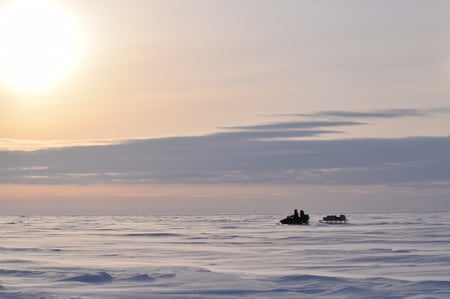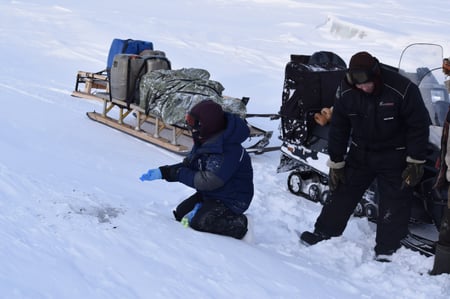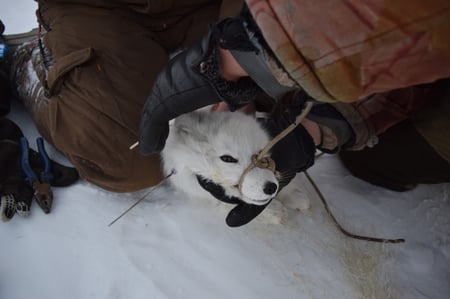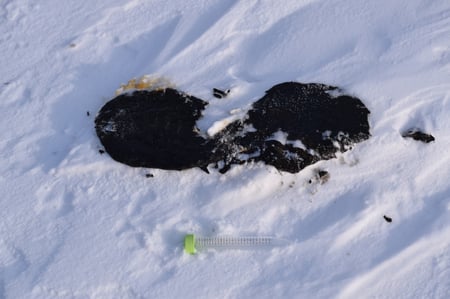From March 22 to April 21, 2017, I visited the Institute of Biological Problems of Cryolithozone Siberian Branch of RAS (IBPC) in Yakutsk, Sakha Republic, Russia. In the coastal area of Sakha Republic, feeding ecology of polar bears is suggested to have changed recently, however the actual condition and the cause of the occurrence are not clear. Therefore I decided to start the study of the feeding ecology of polar bears in the north-eastern Russia as a joint research program with IBPC. The purpose of this visit was to establish the joint study system and carry out the first field survey to collect fecal samples of polar bears.
The field survey was carried out in the south-eastern area of the Laptev Sea, Tiksi, Sakha Republic. Our expedition team consisted of four people including me and three Russian scientists and investigators. We explored the total distance of about 1200km by the snowmobiles for 5 days. On the first day of the survey, we visited a coastal village in Tiksi and collected eyewitness reports of polar bears. According to the inhabitants of the village, polar bears have come close to the village and scavenge food from garbage during the summer in recent years. On and after the second day, we continued our expedition going around small islands scattered in the Laptev Sea, inspecting old fisherman’s huts where polar bears had appeared and sought food. On the final day of the expedition, we were able to collect a fecal sample of a polar bear in a rough ice area, where small ice hills were formed by collision of sea ice. It’s a little disappointing that we could not meet the polar bear itself, but I will save the best for the next expedition.
After returning to Yakutsk, the co-researcher in IBPC and I discussed the future survey plan based on the results of this field survey in Tiksi, which allowed us to clearly share what we need to carry out for our research. Through these activities, I was able to obtain very meaningful results as a preparation to conduct the Russian-Japanese joint research on polar bears.
Last but not least, this trip was carried out with funding from the ArCS’ program for overseas visits by young researchers. I am deeply grateful to everyone who supported me on this trip.
Mina Jimbo (Hokkaido University, Graduate School of Environmental Science)

Exploring the frozen Laptev Sea by snowmobile

Sampling the feces of polar bear

Captured an Arctic fox and attached the Argos satellite collar (another project)





